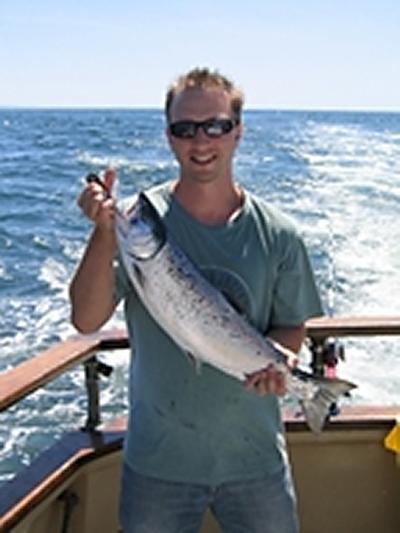Scientists chart the course for a more sustainable future for UK fisheries

An international team of scientists, led by the University of Southampton, have produced new recommendations to help ensure a more sustainable future for UK fisheries in the post-Brexit era.
Despite many representatives of the UK fishing industry being disappointed with the Brexit deal on fisheries, new UK fisheries legislation provides the opportunity to dramatically improve its future sustainability.
To help ensure this opportunity is not lost, a team of academics representing international perspectives in natural resource management, fisheries, marine conservation, law and economics have made a series of recommendations to the Government for more sustainable management of marine fisheries. The main points they raise are:
- Fishing pressure should be such as to allow stocks to reach levels that are 120 percent of that needed to maintain maximum sustainable yields, providing resilience in the face of climate change. Prey fish, on which commercial and other species depend for food, should also be further protected.
- Exploitation of fisheries should be considered more holistically within the wider context of marine resource management, e.g. considering effects of fishing on stocks of marine carbon, and development of a diverse, low emission and modern fishing fleet. Overall fishing capacity should be reduced to allow overexploited populations to recover.
- Existing and future Marine Protected Areas should be adequately protected to promote the regeneration of degraded habitats and restoration of fish stocks by setting clearer targets for enforcement. The fleet should be supported by the use of best available technologies, including Remote Electronic Monitoring.
- In addition to the fishing industry, the Government should work in close partnership with the fisheries and the marine conservation science community and seek to regenerate degraded marine ecosystems, on which sustainable fisheries depend. This may mean people reconsidering the amount and kind of fish they eat and how they are caught.
The scientists hope their advice will help policy makers achieve the objectives of the Fisheries Act – domestic legislation that replaced the Common Fisheries Policy when the UK exited the EU. The recommendations are based on an extensive review of available information on past management of UK fisheries that is outlined in a pair of scientific articles, published today, in the journal ‘Marine Policy’ and summarised in a briefing paper.
Professor Paul Kemp, the lead author from the University of Southampton, said: “We assembled a diverse team of leading experts to provide a balanced and comprehensive perspective on the history of UK marine fisheries policy and management, and the current status of fish stocks and the fishing industry, to provide recommendations for policy to enhance overall sustainability of the resource.”
Despite some recent recovery of some stocks on which UK fishers depend, several remain in a precarious state according to the European Environment Agency.
Professor Kemp continues: “In total, we provide eight recommendations that, if acted on, could enhance the viability of the industry while simultaneously protecting fish stocks that have suffered a long historic legacy of overfishing. This would require strong leadership and collaboration between England and the devolved nations, and for the public to better support UK fishermen and the wider marine resource by reviewing their purchasing habits and selecting more sustainable products, with shorter supply chains, caught by the least damaging methods.
“One of the key recommendations in our report is to improve collaboration and partnership working between the fishing industry, scientists, the government, conservationists and businesses.”
Dr Bryce Stewart from the University of York said: “Recent research has shown that the UK fishing industry generally has limited trust in management and scientific bodies. This will have been further eroded by disappointment over the Brexit fisheries deal. However, when there is strong collaboration across different sectors in fisheries it improves both our knowledge of fish stocks and the effectiveness of management measures. This gives the fishing industry a sense of ownership and trust in management and reduces the need and cost of enforcing regulations.”
Professor Richard Barnes from the University of Lincoln said: “The recently published Joint Fisheries Statement sets the direction of UK fisheries management. It will have a significant impact on how fishing is regulated. Our recommendations show where key improvements can be made within the current legal framework that will make fisheries more sustainable.”
“The future sustainability of the UK fishing industry will rely on making sure that the ecological foundations on which it is built are integral to management,” said Dr Bethan O’Leary from the University of Exeter. “An essential part of ensuring a future for our fisheries while supporting achievement of goals for climate action, biodiversity protection and sustainable development will mean making sure that fish, marine life, and the habitats they live in thrive. Our recommendations are built with these foundations in mind.”
